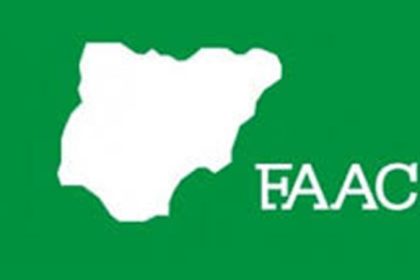
According to the Nigeria Extractive Industries Transparency Initiative, in the second quarter of 2024, the Federation Accounts Allocation Committee distributed N3.473tn to the three levels of government.
This represents a 1.42 percent gain, or N46.77 billion, over the first quarter of 2024.
The agency’s Assistant Director of Communications and Advocacy, Chris Ochonu, made this revelation in a statement on Monday.
These numbers are included in the most recent Quarterly Report on Federation Account Revenue Allocations for Q2 2024 from NEITI, according to Ochonu.
“The Quarterly Review aims to highlight the sources of funds into the Federation Account and the factors affecting the growth or decline in revenues and distributions over time,” stated Dr. Orji Ogbonnaya Orji, the Executive Secretary of NEITI, as he unveiled the report in Abuja.
“Improving knowledge, raising awareness, and encouraging public accountability in the management of public finances is the ultimate goal of this disclosure.”
According to him, the 36 states received N1.337tn (40.47 percent) and the 774 local government councils shared N864.98bn (26.18 percent) of the overall allocation, with the Federal Government receiving N1.102tn, or 33.35 percent.
Nine oil-producing states also received their derivation share from resource revenue, amounting to N169.26 billion.
The Federal Government’s allotment fell by N41.44 billion (3.76 percent) compared to the previous quarter, while state and local government councils recorded increases of N30.82 billion (3.57 percent) and N58.13 billion (4.29 percent), respectively.
The Federal Inland Revenue Service, the Nigeria Customs Service, and the Nigeria Upstream Petroleum Regulatory Commission were determined to be the primary revenue-generating organisations for the Federation Account.
According to the statement, “their contributions included import and excise duties, petroleum profit tax, company income tax, value-added tax, and oil and gas royalties.”
In late 2023 and early 2024, revenue allocations showed an upward tendency, according to the research. From N1.094 trillion in January 2024 to N1.098 trillion in February 2024, the total monthly disbursements experienced a minor decrease to N1.065 trillion in March 2024.
With a gross allocation of N137.36 billion, including oil derivation, Delta obtained the greatest share of state-by-state allocations in Q2 2024, followed by Lagos with N123.28 billion and Rivers in third place with N108.104 billion. States of Nasarawa, Ebonyi, and Ekiti got the least amount—N24.735 billion and N25.40 billion, respectively.
The largest allocation among local governments went to Alimosho in Lagos, which received N5.72 billion, ahead of Ajeromi/Ifelodun (N4.59 billion) and Kosofe (N4.54 billion). Ifedayo was given the least amount, N661.82 million.
“Nine states benefited from 13 per cent oil derivation revenue, with Delta State leading at 40.153 per cent, followed by Bayelsa (38.112 per cent) and Akwa Ibom (36.117 per cent). Rivers State recorded a derivation ratio of 27.272 per cent, while the other oil-producing states had ratios below 20 per cent.
“However, solid minerals-producing states did not receive derivation revenue in Q2 2024 due to insufficient revenue generation from the sector.”
Continuing, the NEITI boss stated that Bauchi State recorded the highest debt deductions in Q2 2024 at N6.49bn, followed by Ogun State. Anambra State had the least deductions at N115.6m, while Lagos and Nasarawa recorded no debt deductions for the quarter.
Making its recommendations, the NEITI urged states to take advantage of ongoing reforms in the solid minerals sector to diversify their revenue sources.
It added, “The Central Bank of Nigeria should strengthen measures to stabilize the exchange rate and reduce fluctuations in Federation Account remittances.
“States should adopt realistic budget benchmarks for oil production and exports to minimize fiscal shocks from price volatility.
“While, the Revenue Mobilisation Allocation and Fiscal Commission and the Office of the Accountant General of the Federation should take decisive steps to increase transparency and accountability, particularly in the payment of special revenue accruals like derivation arrears and debt repayment refunds.”
In addition, the head of NEITI called on the public and civil society organizations—especially those that track revenues and expenses—to express interest in and bolster their ability to watch budgets and oversee the distribution of funds to all levels of government.

